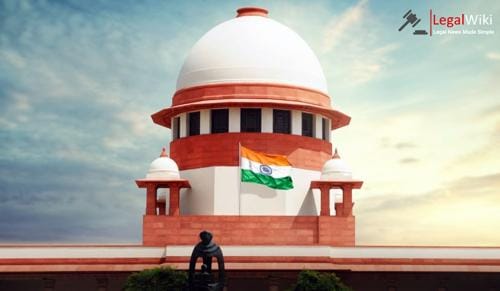Must-Read Books for Law Students (Indian & International)

The legal profession demands more than just memorizing statutes and case laws—it requires developing analytical thinking, persuasive writing skills, and a deep understanding of justice, ethics, and human nature. Whether you're a first-year law student in Mumbai or a final-year student preparing for the bar in Delhi, the right books can transform your understanding of law and shape your legal career. This comprehensive guide presents essential reading across Indian legal scholarship, international classics, and inspiring legal literature that every law student should explore.
Foundation Texts: Essential Indian Legal Literature
Constitutional Law and Legal History
- "The Indian Constitution: Cornerstone of a Nation" by Granville Austin remains the definitive work on India's constitutional framework. Austin's masterful analysis provides deep insights into the drafting process, constitutional principles, and the political context that shaped modern India. This book is indispensable for understanding how India's legal architecture was conceived and continues to evolve.
- "We, the People" by Nani Palkhivala offers a compelling examination of constitutional rights and democratic governance. Palkhivala's passionate advocacy for fundamental rights and his emphasis on citizen empowerment makes this essential reading for understanding constitutional law from a practitioner's perspective.
- "Legal and Constitutional History of India" by Justice M.P. Jain provides comprehensive coverage of how Indian law developed from ancient times through British colonial rule to modern constitutional governance. This historical perspective is crucial for understanding contemporary legal issues.
Legal Biographies and Memoirs
- "Nani Palkhivala: The Courtroom Genius" by Soli J. Sorabjee and Arvind P. Datar chronicles the career of one of India's greatest constitutional lawyers. The book showcases Palkhivala's legendary advocacy skills, his approach to legal arguments, and his role in landmark constitutional cases between 1965 and 1995.
- "Before Memory Fades: An Autobiography" by Fali S. Nariman provides a candid account of one of India's most respected legal minds. Nariman's insights into landmark cases, judicial personalities, and the evolution of Indian law offer invaluable lessons for aspiring lawyers.
- "Roses in December" by M.C. Chagla presents the autobiography of a distinguished judge and diplomat. Chagla's journey from practicing lawyer to Chief Justice of the Bombay High Court offers inspiration and practical insights into judicial life.
Contemporary Legal Analysis
- "10 Judgements That Changed India" by Zia Mody examines transformative Supreme Court decisions that shaped modern Indian society. From environmental protection to privacy rights, this book demonstrates how judicial decisions impact various facets of national development.
- "Landmark Judgments That Changed India" by Ashok K. Ganguly provides detailed analysis of fourteen pivotal cases including Kesavananda Bharati v. State of Kerala and Vishaka v. State of Rajasthan. This book helps students understand how judicial reasoning influences legal evolution.
- "Offend, Shock or Disturb: Free Speech Under the Indian Constitution" by Gautam Bhatia explores the complex balance between freedom of expression and other constitutional values. In the digital age, understanding free speech limitations is crucial for legal practice.
Academic Textbooks: Subject-Wise Essentials
Core Legal Subjects
For systematic study, law students need reliable textbooks covering fundamental subjects:
Constitutional Law:
- D.D. Basu's "Introduction to the Constitution of India" provides strong foundational understanding
- J.N. Pandey's "Constitutional Law of India" offers comprehensive coverage
- P.M. Bakshi's "Constitution of India" serves as an excellent reference
Criminal Law:
- Ratanlal & Dhirajlal's "Indian Penal Code" remains the gold standard
- K.D. Gaur's works on criminal law provide detailed analysis
- New editions covering Bharatiya Nyaya Sanhita (BNS) are essential for current practice
Contract Law:
- Avtar Singh's "Indian Contract Act" is widely adopted by students and teachers
- S.P. Singh's contract law texts offer practical insights
Civil Procedure:
- C.K. Takwani's "Civil Procedure Code" provides clear procedural guidance
- Mulla's CPC offers comprehensive coverage
Evidence Law:
- Batuk Lal's "Evidence Act" uses clear language with practical examples
- K.D. Gaur's "Evidence Act" is highly respected for detailed analysis
- New editions covering Bharatiya Sakshya Adhiniyam (BSA) are crucial
Jurisprudence and Legal Philosophy
- "Jurisprudence and Legal Theory" by Dr. V.D. Mahajan stands as the classic introduction to legal philosophy. Every topic is elaborated clearly, making complex jurisprudential concepts accessible to students.
- "Studies in Jurisprudence & Legal Theory" by Dr. V.N. Paranjape offers lucid explanations suitable for beginners. Available in both Hindi and English, this book helps students understand detailed theoretical analysis in their preferred language.
- "Jurisprudence (Legal Theory)" by Dr. S.R. Myneni provides excellent exam-focused coverage. The clear language makes it suitable for both LLB studies and competitive examinations.
International Legal Classics
Foundational Philosophy of Law
- "The Concept of Law" by H.L.A. Hart represents one of the most influential works in legal philosophy. Hart's positivist approach to understanding law as a system of rules provides essential theoretical grounding.
- "Law's Empire" by Ronald Dworkin presents a compelling alternative to Hart's positivism. Dworkin's argument that law is fundamentally connected to morality offers a different lens for understanding legal interpretation.
- "On Liberty" by John Stuart Mill articulates the principle that law should only restrict individual freedom to prevent harm to others. This foundational text on individual liberty remains highly relevant to contemporary legal debates.
- "The Rule of Law" by Tom Bingham provides a masterful explanation of this fundamental legal principle. Understanding rule of law concepts is essential for any legal career.
Legal Skills and Advocacy
- "Making Your Case: The Art of Persuading Judges" by Antonin Scalia and Bryan A. Garner offers practical guidance on effective legal advocacy. This book teaches how to structure arguments and present cases persuasively.
- "Letters to a Law Student" by Nicholas McBride provides invaluable advice on studying law effectively. McBride's guidance covers everything from note-taking techniques to understanding case law.
- "Learning the Law" by Glanville Williams explains the English legal system clearly and comprehensively. Though focused on English law, many principles apply broadly to common law systems.
Public International Law
Essential Textbooks
- "Public International Law" by S.R. Myneni offers comprehensive coverage tailored for Indian law students. The second edition includes updated material on contemporary international legal developments.
- "An Introduction to Public International Law" by S.K. Verma covers major developments in international law, including recent conflicts and peace initiatives. The 2025 fourth edition addresses contemporary challenges in international relations.
- "Public International Law" by H.O. Agarwal remains a popular choice for students. This text covers treaties, state responsibility, and international dispute resolution comprehensively.
Literary Works and Legal Fiction
Classic Legal Literature
- "To Kill a Mockingbird" by Harper Lee remains the most influential legal novel ever written. Atticus Finch's moral courage in defending justice against prejudice continues to inspire lawyers worldwide.
- "The Trial" by Franz Kafka offers a surreal exploration of bureaucratic justice. This novel provides unique insights into the absurdities that can plague legal systems.
- "Bleak House" by Charles Dickens presents one of literature's greatest portrayals of the legal profession. Set in legal London, this novel reveals both the nobility and the flaws within legal practice.
Contemporary Legal Thrillers
- "The Firm" by John Grisham launched the modern legal thriller genre. This novel explores the moral dilemmas facing young lawyers in high-pressure environments.
- "Presumed Innocent" by Scott Turow combines legal procedure with compelling storytelling. As both a practicing lawyer and novelist, Turow brings authentic legal detail to his narratives.
- "A Time to Kill" by John Grisham tackles themes of justice, race, and morality. This novel demonstrates how legal cases intersect with broader social issues.
Indian Legal Fiction
The growing field of Indian legal fiction offers culturally relevant narratives. Works exploring Indian court systems, legal procedures, and justice delivery provide valuable cultural context alongside entertainment.
Specialized Practice Areas
Business and Corporate Law
- "Company Law" by Avtar Singh provides comprehensive coverage of Indian corporate legal framework. Understanding corporate governance principles is essential for commercial practice.
- "Law and the Rise of Capitalism" by Michael Tigar examines the historical relationship between legal systems and economic development. This analysis helps students understand law's role in business and commerce.
Environmental and Social Justice Law
- "Environmental Law" by Dr. S.C. Shastri covers pollution control, public interest litigation, and sustainable development. Environmental law increasingly intersects with all legal practice areas.
- "Environmental Law" by Leelakrishnan offers detailed coverage of environmental protection legal frameworks. This text is valuable for understanding contemporary environmental challenges.
Family and Personal Law
- "Family Law Lectures" by Kusum provides comprehensive coverage of Hindu law, divorce, and guardianship issues. This book offers insights into personal law with gender sensitivity.
- "Hindu Law" by Paras Diwan covers traditional and modern aspects of Hindu personal law. Understanding personal law remains important for general legal practice.
Legal Writing and Communication
Writing Excellence
- "Legal Writing in Plain English" by Bryan A. Garner teaches lawyers to communicate clearly and persuasively. Eliminating legal jargon while maintaining precision is a crucial skill.
- "Point Made: How to Write Like the Nation's Top Advocates" by Ross Guberman uses real court filings to demonstrate effective legal writing. Before-and-after examples show exactly how top lawyers craft their arguments.
- "Textbook on Legal Language and Legal Writing" by Prof. Dr. K.L. Bhatia addresses the specific challenges of legal communication in the Indian context. This book helps students develop both oral and written communication skills essential for legal practice.
Professional Development
- "The Curmudgeon's Guide to Practicing Law" by Mark Herrmann offers practical career advice with dry humour. This book covers professional etiquette, client relations, and career navigation.
- "Legal Writing: Getting It Right and Getting It Written" by Mary Ray and Jill Ramsfield provides comprehensive guidance on legal document preparation. From research memos to appellate briefs, this text covers essential writing formats.
Contemporary Challenges and Future Trends
Technology and Law
- "The Phoenix Project" by Gene Kim, Kevin Behr, and George Spafford teaches efficiency and collaboration principles relevant to modern legal practice. Understanding operational excellence helps lawyers serve clients more effectively.
- "The Coming Wave" by Mustafa Suleyman examines how artificial intelligence and automation are reshaping society and law. Legal professionals must understand technological disruption to remain relevant.
Legal Technology and Innovation
- "Handbook of Legal Tech" by Colin Levy provides essential guidance for understanding and leveraging technology in legal practice. Modern lawyers must embrace technological tools while maintaining professional excellence.
Conclusion: Building a Legal Mind Through Reading
The books recommended in this guide represent more than academic requirements—they are tools for developing the analytical thinking, ethical reasoning, and communication skills that define excellent lawyers. Whether exploring constitutional principles with Austin and Palkhivala, grappling with jurisprudential questions through Hart and Dworkin, or drawing inspiration from literary portraits of justice, each book contributes to your development as a legal professional.
The legal profession demands lifelong learning. The reading habits you develop as a student will sustain your growth throughout your career. Start with foundations, explore broadly, and remember that great lawyers are not just technicians—they are thinkers, communicators, and advocates for justice.
Building a comprehensive legal library takes time and investment, but the knowledge gained from these essential texts will serve you throughout your legal career. Whether you practice in trial courts, corporate boardrooms, or international tribunals, the insights from these books will inform your judgment, enhance your advocacy, and deepen your understanding of law's role in society.
Happy Reading!
Join our WhatsApp group for more updates!
Visit Legalwiki.co for more legal updates.




